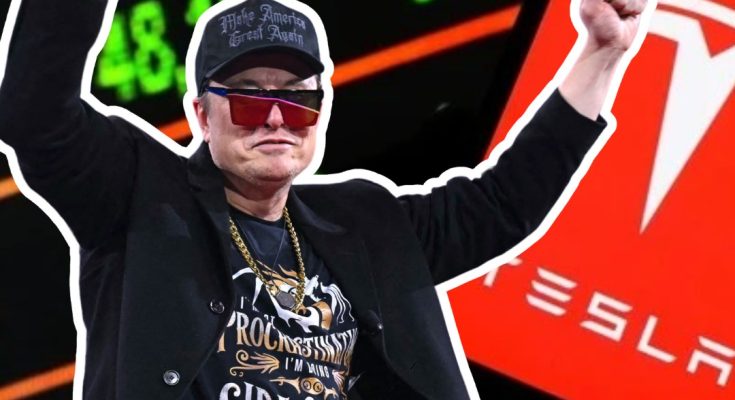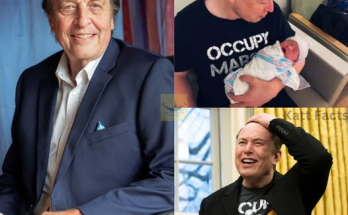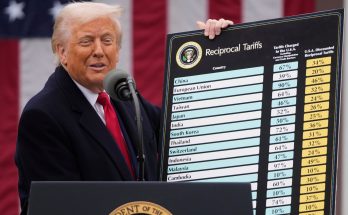Elon Musk’s wealth has seen an extraordinary resurgence, with a staggering $6.9 billion jump in a single day. This remarkable surge comes as Tesla’s stock, which had been on a downward spiral, began to recover. Musk, the billionaire entrepreneur behind Tesla, SpaceX, and a variety of other ventures, has been the subject of much scrutiny and public criticism, but his financial fortunes remain undeterred.Despite these challenges, Musk continues to reign as the richest person in the world, with a net worth of $348 billion, according to the Bloomberg Billionaires Index.Tesla Inc., the electric vehicle giant that Musk is best known for, saw its stock rebound by 22% over the last four days. This recovery has helped boost Musk’s net worth and reignited optimism about the company’s future. However, the broader landscape of Tesla’s performance is far from perfect.The company has been grappling with declining sales in both the European Union and the United States, and new challenges, such as potential shifts in U.S. government policies, threaten to impact its future performance.Tesla’s recent stock surge is impressive, but it’s important to contextualize this in the broader narrative of the company’s performance. While the stock price is recovering, Tesla’s market cap stands at $927 billion, and it remains the 10th most valuable company globally, the company faces increasing competition, particularly in the electric vehicle (EV) space.Tesla was recently surpassed by China’s BYD as the world’s largest electric vehicle company based on revenue, signaling a shift in the global EV market. Tesla’s dominance is also being challenged in the U.S. market, where the company is facing a combination of political and market-related headwinds.A growing number of consumers in the U.S. are reportedly deterred from purchasing Tesla vehicles due to Musk’s close ties with the Trump administration. Meanwhile, in China, Tesla is losing market share to local EV competitors, underscoring the intense competition in the region.In the U.S., another potential threat looms in the form of the possible discontinuation of the $7,500 EV tax credit. Most Tesla models qualify for at least a portion of this credit, and the elimination of this incentive could lead to higher prices for Teslas and other electric vehicles.Given that Tesla is already experiencing sales challenges in both the U.S. and Europe, such a move could exacerbate the difficulties the company is facing, especially if prospective buyers are dissuaded by the added cost.Tesla’s struggles with sales are not entirely new. In fact, the company’s worldwide deliveries for 2024 declined by just over 1.1%, falling to 1.8 million vehicles. This decline, while modest, is a notable signal of the pressures facing Tesla as both traditional automakers like Ford and General Motors, and newer EV manufacturers, continue to expand their market share.It’s important to consider that the entire EV industry is experiencing some of the same issues. Americans still express concerns about the limited availability of charging stations, the time it takes to charge EVs, and the high upfront costs associated with purchasing new electric vehicles. These concerns remain significant barriers to EV adoption, even as Tesla pushes for continued growth.Nevertheless, Tesla has managed to navigate these challenges with its aggressive price cuts and its growing infrastructure of Supercharger stations, which have helped bolster its position in the market. It remains to be seen, however, whether these efforts will be enough to counter the mounting competition and potential policy shifts in the U.S. that could further complicate Tesla’s road ahead.While Tesla remains Musk’s most well-known company, it’s important to recognize that his financial empire extends far beyond electric cars. One of Musk’s most successful ventures is SpaceX, the private aerospace company he founded to revolutionize the space industry.SpaceX has become the dominant player in the global rocket market, successfully launching satellites, cargo, and even people to space for NASA, the Pentagon, and various commercial partners.SpaceX’s leadership in the industry is indisputable. The company’s Falcon rockets and reusable spacecraft have drastically reduced the cost of space travel, while its Starship project holds the promise of enabling human space exploration to Mars and beyond. Additionally, SpaceX has launched an ambitious plan to build out its Starlink satellite network, providing global internet coverage from space. With Musk owning 42% of SpaceX and holding 79% of the company’s voting shares, he wields significant influence over the company’s direction.Currently valued at $350 billion, SpaceX plays a major role in propelling Musk’s net worth. The company’s ability to secure lucrative government contracts, as well as commercial agreements with international clients, ensures its continued growth.As SpaceX further establishes its dominance in the space industry, Musk’s wealth is likely to continue benefiting from its success.In addition to Tesla and SpaceX, Musk has positioned himself as a major player in the emerging world of artificial intelligence. His company, xAI, has rapidly become a prominent challenger to OpenAI, the creator of the popular language model GPT.Recently valued at between $40 billion and $50 billion after raising $6 billion in funding, xAI is working to develop AI systems that Musk believes could shape the future of technology and revolutionize industries across the globe.Musk’s ownership of more than half of xAI, combined with his other interests in AI and technology, makes him a key figure in the rapidly evolving AI space. Although OpenAI’s valuation recently hit $157 billion, Musk’s continued investment in AI could ultimately position xAI as a direct competitor to OpenAI’s dominance in the field.Beyond Tesla, SpaceX, and xAI, Musk’s portfolio includes a range of other ventures, such as X, the social media platform formerly known as Twitter, and Neuralink, the company focused on implantable brain-computer interfaces. These ventures add to Musk’s already vast financial empire and serve to diversify his holdings.While X has encountered its own set of challenges, including controversies surrounding content moderation and user growth, Musk’s influence in the tech space remains strong.Neuralink, on the other hand, is a cutting-edge medical technology company that aims to develop devices capable of bridging the gap between the human brain and computers. Neuralink’s potential to revolutionize healthcare, particularly in the fields of neurology and cognitive enhancement, adds yet another layer to Musk’s expansive business empire.Despite facing significant challenges—whether in the form of declining sales, political controversies, or increasing competition—Elon Musk’s financial empire continues to thrive. His wealth remains largely unaffected by the external criticisms and obstacles he faces.In the eyes of Musk’s detractors, his rise to the top is a symbol of everything that’s wrong with modern capitalism, but Musk himself remains unfazed. As he often puts it, “Haters gonna hate.”Whether it’s Tesla, SpaceX, xAI, or his other ventures, Musk’s ability to innovate and dominate in multiple industries has solidified his position as the richest person on the planet. His wealth is a reflection not only of his entrepreneurial success but also of his ability to adapt to and overcome the shifting dynamics of global markets.With Tesla’s recent stock recovery and the continued success of his other businesses, it seems clear that Musk’s reign at the top is likely to continue for the foreseeable future.
5 minutes ago: Despite the criticism and envy, Elon Musk’s net worth soars by tens of billions. Haters gonna hate!



